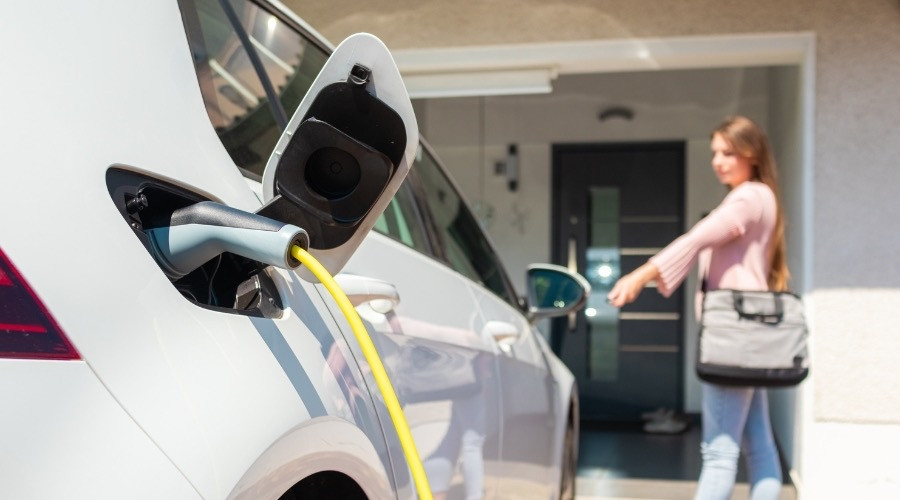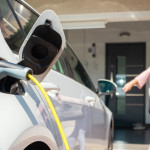All About Electric Vehicle Charging Stations
Installing an electric vehicle charging station can redefine daily travel and reduce concerns about battery range. The presence of an at-home charger turns longer drives into more manageable experiences without the stress of finding a charging point. With professional installation and the right equipment, this upgrade offers a practical way to maintain a charged vehicle and potentially increase property value. This guide outlines how such an installation can provide lasting benefits for both mobility and home ownership.
What Are Electric Vehicle Charging Stations?
 Electric vehicle charging stations serve as specialized outlets that deliver power directly to the battery via a charging cable. These stations convert alternating current (AC) from the grid into the direct current (DC) needed for battery storage. In many ways, the role of these stations mirrors that of gas pumps, but adapted for modern electric transport.
Electric vehicle charging stations serve as specialized outlets that deliver power directly to the battery via a charging cable. These stations convert alternating current (AC) from the grid into the direct current (DC) needed for battery storage. In many ways, the role of these stations mirrors that of gas pumps, but adapted for modern electric transport.
Most residential setups include either Level 1 (120-volt) or Level 2 (240-volt) systems. Level 2 chargers are typically favored due to faster charging capabilities—usually within 4 to 8 hours—compared to the 12 to 20 hours needed by Level 1. Charging starts when the vehicle is connected, with built-in safety protocols monitoring the process to ensure proper energy flow.
Advanced models also include communication software that interacts with the vehicle’s onboard systems. These features help determine charging speed based on battery condition, temperature, and manufacturer guidelines. According to the U.S. Department of Energy, such smart features can extend battery life by as much as 15% over basic charging setups.
Types of Electric Vehicle Charging Stations: Understanding Your Options
Electric vehicle charging stations fall into two primary categories suited for residential use. These include Level 1 and Level 2 chargers, each catering to different charging needs. The selection between them depends largely on commuting distance and energy requirements.
Level 1 chargers connect to standard 120-volt outlets and provide approximately 3 to 5 miles of range per hour. Overnight charging can typically deliver 40 to 50 miles of range. This option works well for short commutes but may not meet the demands of longer daily drives.
Level 2 chargers operate on 240-volt power and add 25 to 40 miles of range per hour. Most electric vehicles can reach full charge overnight using this method. With over 80% of charging occurring at home, according to the U.S. Department of Energy, Level 2 chargers offer a balanced solution for efficiency and convenience.
Benefits of Electric Vehicle Charging Stations
 Home charging stations offer a reliable solution for daily recharging needs without relying on public infrastructure. A fully charged vehicle becomes available each morning, enhancing predictability and reducing downtime associated with seeking public chargers. The garage transforms into a private fueling station.
Home charging stations offer a reliable solution for daily recharging needs without relying on public infrastructure. A fully charged vehicle becomes available each morning, enhancing predictability and reducing downtime associated with seeking public chargers. The garage transforms into a private fueling station.
From a financial perspective, residential EV charging presents notable savings. Data from the U.S. Department of Energy shows that home charging costs nearly 60% less than public alternatives. Over time, this difference can amount to hundreds of dollars saved annually.
Additionally, property value often increases with the presence of EV charging infrastructure. Homes equipped with such stations tend to sell more quickly and attract greater interest. As electric vehicles become more mainstream, this feature positions the home as forward-thinking and ready for the future.
Call Aptus Home Services
Aptus Home Services is a veteran-owned plumbing, HVAC, and electrical company serving Mt Pleasant, SC, and beyond. They offer same-day service, straightforward pricing, and trusted technicians. Call them for EV charging station installation services in Mt Pleasant, SC.





